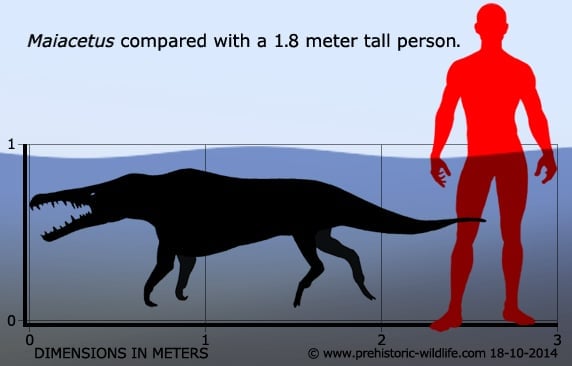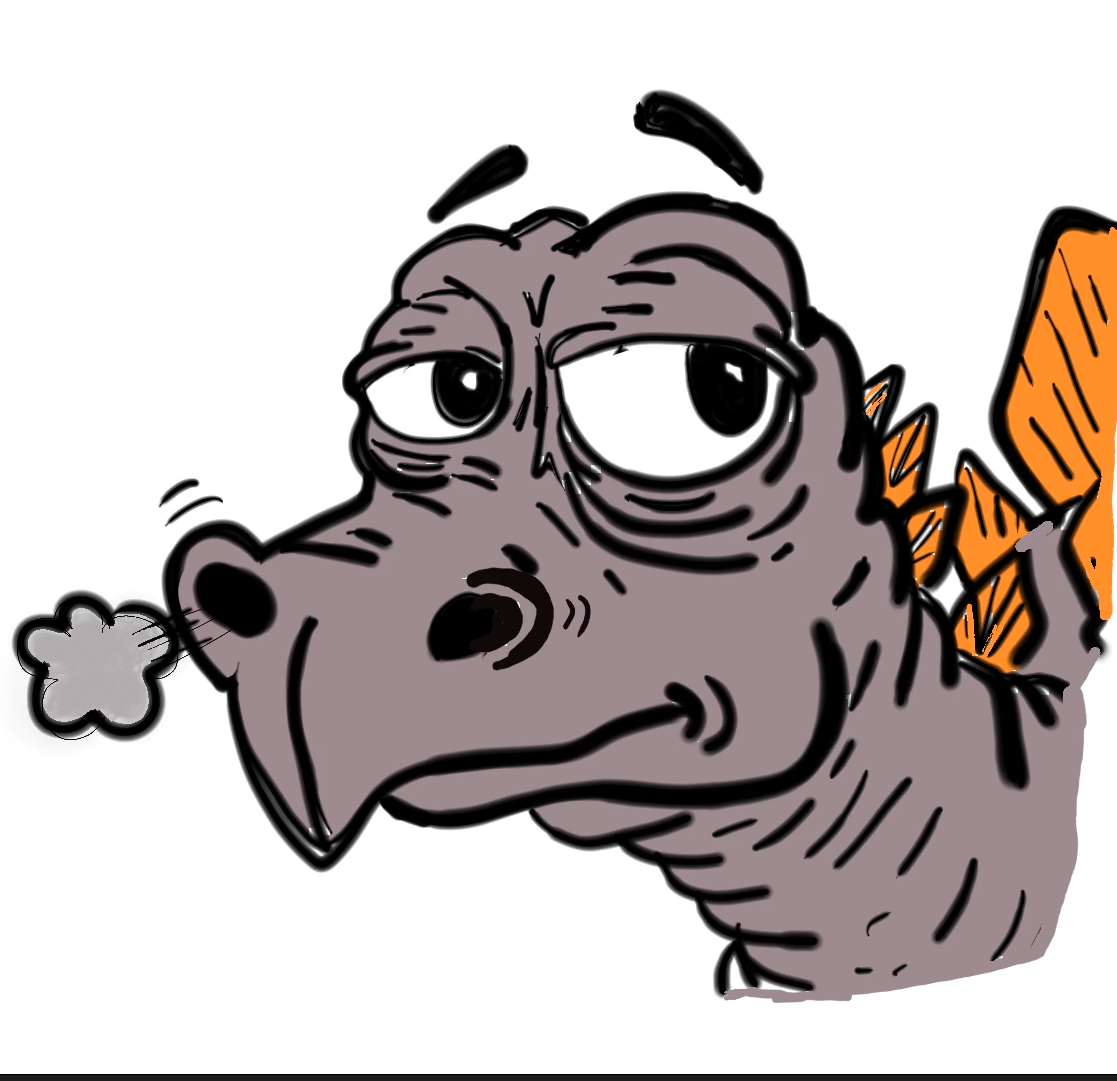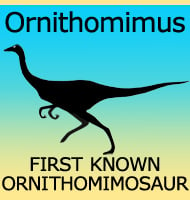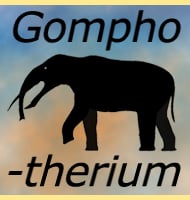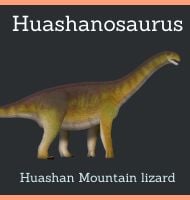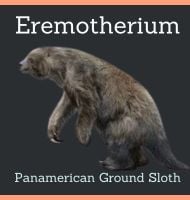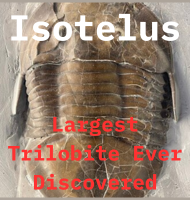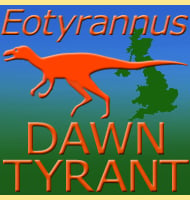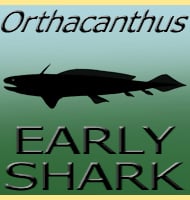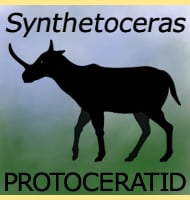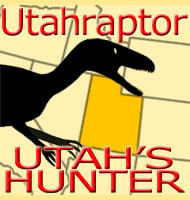In Depth
The name Maiacetus means ‘good mother whale’ and this is a reference to the fact that the holotype of Maiacetus was composed of a skull with post cranial skeletal remains, and inside of the post cranial skeleton there appears to be the remains of a fossilised foetus. If this interpretation is correct then this would mark the first discovery of a foetus within an archeocetid whale. An alternative theory (Thewissen & McLellan, 2009) however has proposed that the ‘foetus’ may have actually been eaten by the individual Maiacetus in question. Counter to this however is the noted lack of feeding damage to the foetus skeleton, specifically a lack of tooth marks on the bones.
A second skull added to Maiacetus shows an individual with a larger skull, and this has been interpreted as belonging to a male Maiacetus. If this is correct, then Maiacetus will not just be the first potential example of an archaeocetid foetus, but also one of the earliest examples of sexual dimorphism within primitive whales. Care should be taken not to confuse Maiacetus with the very similarly named Maiasaura, a hadrosaurid dinosaur from the late Cretaceous of North America.
Further Reading
- New protocetid whale from the middle Eocene of Pakistan: birth on land, precocial development, and sexual dimorphism. - PLoS ONE 4 (2). - P. D. Gingerich, M. al-Haq, W. Koenigswald, W. J. Sanders, B. H. Smith & I. S. Zalmut - 2009. - Maiacetus: displaced fetus or last meal? - PLoS ONE- J. G. M. Thewissen & W. A. McLellan - 2009.
